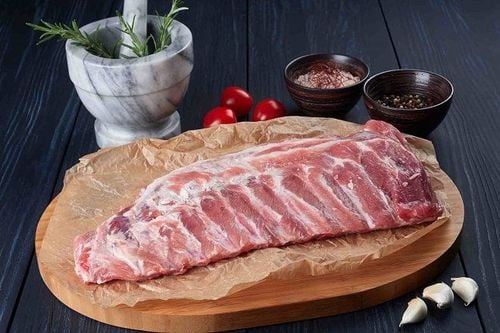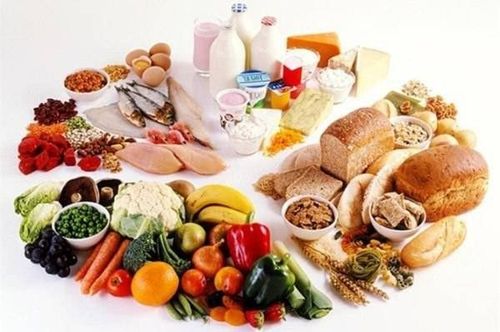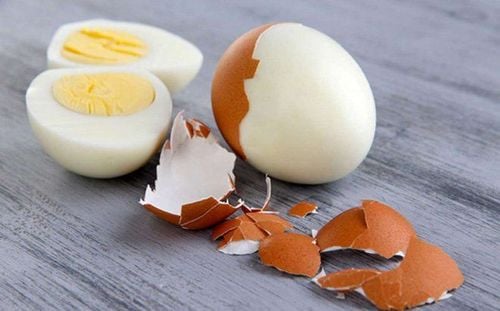This is an automatically translated article.
Today, many of us are living on a budget and looking for ways to reduce our food costs. Eating a healthy diet is important for your mental health as well as your physical health. But at a time when so many of us are out of work, facing an uncertain financial future, or living on a tight budget, finding food that is both good and affordable can be a challenge. a challenge. In this article, we'll give you useful information to help you come up with good eating strategies that work within your budget.1. Plan your meals, make a grocery list, and shop wisely
This will help you avoid impulse purchases that add up to your shopping bill. Also, be sure to scan your fridge and drawers to see what you've got. There is usually a lot of food hidden in the back that can be used.Only plan to buy things you know you'll use, so you don't end up throwing away a lot of what you buy.
When going to the supermarket remember that the supermarket can put the most expensive or popular items at eye level, so look closely at the shelves to find lower priced items that are not inferior in quality .
Don't be tempted to buy more by special offers if you don't really need them. Try to go to the supermarket near closing time because then the discounts will be at their highest.

Lên kế hoạch cho bữa ăn của bạn, lập danh sách thực phẩm và mua sắm một cách khôn ngoan
2. Cooking at home
Obviously, cooking at home is much more economical than eating out. The amount of food out for 2 people is enough for a family of 4 to eat at home.In addition, another benefit of cooking at home is that you know exactly where the food your whole family will eat is always fresh and hygienically prepared or more importantly, a meal at home create a fun atmosphere for all members, during a meal you can ask your child about a day at school, talk to your husband about some plans, a meal full of members brings everyone together closer and closer to each other. From time to time to change the atmosphere, the whole family can go out to eat, but also consider eating out too much.
3. Consider food choices
Buy pieces of chicken according to your needs rather than buying a whole chicken that you can't use up all of them. You can also ask the seller to cut for you the pieces you want instead of having to buy the whole piece. If the supermarket has a discount program, you can consider buying more, but avoid buying too much, you will not be able to use it all and cause waste.Canned fish like sardines and salmon can be cheaper than buying fresh fish. They're high in omega-3 fats that can help keep your heart healthy, plus they're easy to prepare and have a long shelf life. Choose to soak in spring water to keep salt levels to a minimum. Frozen fish is often very valuable and can be added to a variety of dishes. If there are special deals on fresh fish, you can also take advantage of these deals and freeze them when you're not using them right away.
Fresh fruits and vegetables can be cheaper if you buy them at the local market than the supermarket. If you buy from the supermarket, consider buying fruits and vegetables in bulk, which can be much cheaper than prepackaged ones. Fresh seasonal fruits and vegetables are usually cheaper and taste better.
4. Proper meal planning
Women always have a headache because of the thought "What to eat today?", you are a housewife in your family, you understand the eating habits of each person. If possible, make a menu for a few days in a row and choose foods according to that menu, cook just enough to avoid excess, which will generate more waste and affect your budget.You can take advantage of leftovers to process dishes in different ways to change the taste, but do not overdo this because food processed many times will lose most of the nutrients. essential substances.
5. Don't go shopping when you're hungry
If you go to the grocery store hungry, you're more likely to get lost in your grocery list and buy something on impulse.When you are hungry, you often crave foods that are not good for your health and your wallet.
Try to eat a piece of fruit, yogurt or other healthy snack before you go to the store.

Khi đói, bạn thường thèm ăn những món không tốt cho sức khỏe và túi tiền của mình
6. Buying in bulk is better than buying a little bit
When you go to the market instead of going to the supermarket, choose to buy some foods in bulk instead of buying a little bit at a time. Because sellers tend to give you a discount when you buy moreExample: When you buy some onions the seller will give you the retail price and will definitely be more expensive if you buy half a kilo or a whole kilo . Onions are a very common spice that appears in every Vietnamese meal and dried onions are also very easy to preserve when you know how. Or buying a dozen eggs is definitely cheaper than buying one or two...
Buying a little more will be a wise choice for your budget when choosing to buy some essential foods
7. Consider meat-free meals
Protein sources are not only from meat, fish, and eggs. Plant-based proteins are also a wise choice of savvy housewives, they are both high in nutritional value and generally more affordable than meats and fish. If you still crave meat, incorporate smaller amounts as a base for flavoring or seasoning, and focus on plant-based proteins like beans or tofu so you can save money, increase volume. meals, enhance nutrition and still taste delicious.8. Stop buying junk food
Cut out some junk foods from your diet.You will be surprised at how much you can pay for soft drinks, confectionery, prepackaged and processed foods.
In fact, although they provide very little nutrition and contain many unhealthy ingredients, they are also very expensive.
By skipping processed and unhealthy foods, you can spend more of your budget on healthier, higher-quality foods.
9. Shop for seasonal foods
Local produce that is in season is usually cheaper. It is also often at its peak in terms of both nutrients and flavor.Out-of-season products are often shipped from elsewhere to your store, which is not good for the environment as well as your budget, it is inevitable that they may even contain pesticide residues or stimulant.
If you buy more than you need, you can freeze the rest or incorporate it into next week's meal plan.
10. Buy frozen fruits and vegetables
Fresh fruits, berries and vegetables are usually only in season for a few months each year and are sometimes quite expensive.Quick-frozen products are often also nutritious. It's cheaper, available year-round, and usually sold in large bags.
Great frozen product to use when cooking, making smoothies, or as a topping on oatmeal or yogurt.
Furthermore, you have the advantage of being able to only take out what you are about to use. The rest will be kept safely undamaged in the freezer.
Reducing production waste is a great way to save money.
11. Grow your own crops if you can
Today, housewives tend to grow vegetables for their families when they can, both to ensure clean ingredients and as a way to relieve stress after busy days at work.A weekend where the whole family takes care of the vegetable garden, catches worms, prunes leaves and harvests the fruits, and then enjoys them together, what could be more ideal. That is also how you can teach your children to love work more.
Seeds are very cheap to buy. With a little time and effort, you can grow your own herbs, sprouts, tomatoes, onions, and many other delicious vegetables.
Having a constant supply at home saves you on store purchases.
Homegrown produce can also taste much better than store-bought varieties. You can also make sure it doesn't use stimulants and pesticides.
12. Prepare your lunch
Eating out is expensive, especially if done regularly.Packing your lunches, snacks, drinks and other meals is less expensive and healthier than eating out.
It requires some planning, but it will save you a lot of money at the end of the month while also helping you eat clean foods

Bạn có thể tự trồng các loại rau thơm , rau mầm, cà chua , hành tây và nhiều loại rau ngon khác
13. Use Coupons Wisely
Coupons are a great way to save some money.Just make sure to use them wisely as most coupons are for processed, unhealthy foods.
Choose wisely, stock up on things that you and your family will surely use, don't buy too much because of the desire to reduce the price and then waste it. Sometimes you can skip coupons if you don't feel they are absolutely necessary.
14. Appreciate foods that are not too expensive
There are many foods that are both cheap and healthy.By making some adjustments and using ingredients that you may not forget, you can prepare many delicious and inexpensive meals. Check out recipes on the web to change your family's taste with new dishes is a wise choice.
Try increasing your use of eggs, beans, seeds, frozen fruits and vegetables, and cheaper meats and whole grains.
They all taste great, are cheap and very nutritious.
15. Arrange the refrigerator properly
Before you go to the supermarket or go to the market, remember to take a look at your refrigerator to see what is left so that when you go shopping, you do not buy too many duplicates of what is in your closet. Also don't buy too many to stock up unless they are dry foods that can be stored for a long time.Arrange the order of food by date of use and expiration, what needs to be used first should be left out and also remember to divide food by area of cooked food.
With the tips provided above, I wish housewives to have a reasonable spending plan for each meal in the family, while ensuring that the criteria are delicious and cheap.
Please dial HOTLINE for more information or register for an appointment HERE. Download MyVinmec app to make appointments faster and to manage your bookings easily.
References: hsph.harvard.edu, healthline.com, nutrition.org.uk












